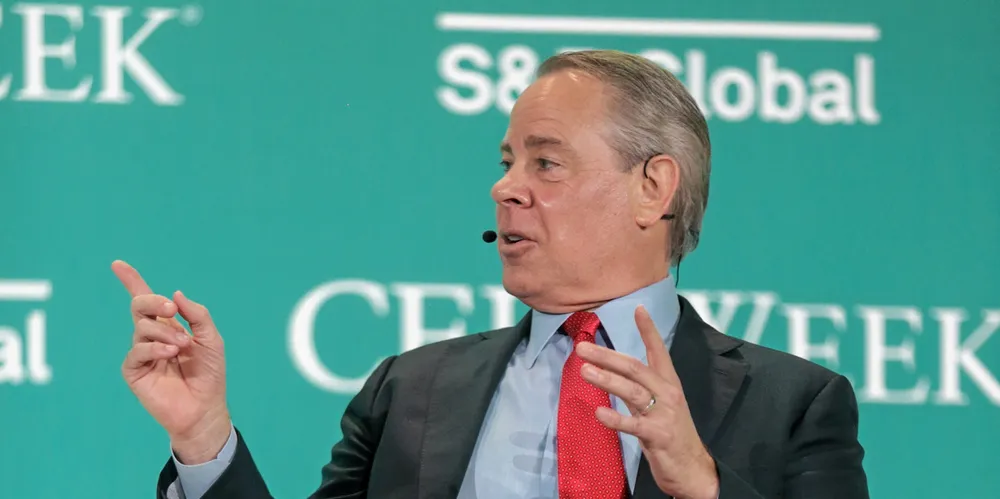NextEra says 'panels now flowing' despite US trade measures on Chinese solar
Developer reports easing of delays as policies on imports add to supply chain complexity

NextEra Energy, the leading US grid-scale renewable energy developer, said its solar projects are no longer experiencing material delays even as government trade policies continue to limit supply from Southeast Asia.
“The flow of panels is going very well. We’ve been active with Customs and Border Patrol (CBP) and panels are now flowing through the ports,” CEO John Ketchum told financial analysts.
Florida Power and Light, its electric utility and the country’s largest, is also proposing to install about 20GW of solar capacity in its state service territory through 2032.
In January, NextEra said an unspecified volume of panels for certain projects had been detained at certain ports after CBP began enforcement of the Uyghur Forced Labour Protection Act that took effect last June. They were later released.
The law addresses alleged human rights abuses in China’s Xinjiang region, a major global supply source for polysilicon, cells, and other critical components in solar panels. China has repeatedly denied allegations of forced labour.
While the presumption that any product using inputs from Xinjiang benefited from forced labour is rebuttable, the process for providing the proper evidence to comply with the law can take weeks, or months.
Potential product detentions have led some suppliers in Southeast Asia to divert cargoes away from the US market or avoid filling orders from here.
Last year, President Joe Biden’s administration launched a probe into allegations that China was avoiding US tariffs on wafers, cells, and modules by routing them for “minor processing” to affiliated manufacturing facilities in Cambodia, Malaysia, Thailand, and Vietnam. By tonnage, those nations together account for about 80% of US PV module imports.
Department of Commerce (DoC) initially found four large Chinese suppliers were avoiding duties in this manner. Another 22 companies in Malaysia, Thailand and Vietnam did not respond to DoC’s request for information in the probe, and consistent with longstanding agency practice, were initially found to be circumventing US tariffs.
Those suppliers will be subject to new and potentially retroactive tariffs as from 6 June 2024 – if DoC ratifies this initial finding in a final determination due out next week.
Biden’s controversial two-year preemptive waive of import duties on PV cells and modules from those nations expires on 6 June 2024.
The agency did, however, identify four other Chinese manufacturers including Jinko Solar, a major player here, as complying with US tariffs.
The threat of further US tariffs had a chilling effect on sector activity here with 2022 utility PV installations tumbling 36% to 11.8GW, the worst result since 2019. Utility PV is by far the largest solar market segment.\
NextEra was affected as well and had to push completion of some solar projects from last year into 2023.
Meanwhile, the company has been working for more than a year with its global suppliers to source panels and their materials and components outside of China, while advancing discussions to support domestic production of modules.
At the end of Biden’s two-year waiver period, NextEra is “confident” its sourcing of panels will meet US trade guidelines.
On Tuesday, Ketchum said NextEra’s capital spending and sophistication with managing a global supply chain has given the company “a lot and a diversified set of options” to source panels. “We’re exercising those options and we’re exploring new opportunities as well,” he said
Those other global diversification opportunities, which he did not detail, will even better position NextEra’s solar business “to really capitalise on the competitive advantage we have in terms of buying power around the supply chain.”
Despite the bullish outlook with the US climate law set to stoke demand, near-term supply remains a concern for most smaller rivals in the solar industry.
US-China relations are at their lowest level in decades and anti-China sentiment is pervasive in Congress, which could have further negative implications for bilateral clean energy trade.
Whether Biden will extend the waiver period as the industry wants or enforce tariffs is a big unknown as that decision will occur before crucial 2024 national elections. Biden is running for a second, four-year term but appears beatable if Republicans can field a candidate other than Donald Trump.
It also remains to be seen how much additional domestic module manufacturing capacity will come online through next year in response to generous tax incentives available in the Inflation Reduction Act. Domestic module suppliers such as First Solar have sold out existing capacity through 2025.
(Copyright)